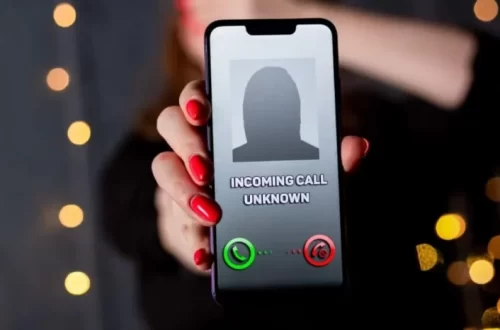Warning: 3456849135, +393511958453, 3409709183, 0289952272, +393511126529, 3469800477, +393319997840, +393773021998, +390669328449, +393473464731, 0697858700, +393512079596,
Have you ever received an unknown international call, only to find out it’s just another annoying spam call? Spam calls have become an everyday nuisance for people around the world. In recent times, there has been a concerning trend where Italian phone numbers are being flagged as potential sources of spam calls. This article delves into the rise of spam calls from Italian numbers, the possible reasons behind it, and what measures can be taken to tackle this issue effectively.
The Rise of Spam Calls from Italian Numbers
The surge in spam calls from Italian numbers has raised alarms among phone users worldwide. This problem is not isolated to a specific region or country; it’s a global phenomenon affecting millions of individuals. Many people have reported receiving unsolicited calls claiming to be from Italian companies, offering suspicious services or products, or even resorting to phishing attempts to extract personal information.
The Impact on Individuals and Businesses
Spam calls cause significant disruption and frustration to individuals and businesses alike. For ordinary users, it is an invasion of privacy and a constant interruption during daily activities. Businesses, on the other hand, suffer from reduced productivity as employees waste time dealing with unwanted calls. Moreover, spam calls can also damage the reputation of legitimate Italian businesses, as scammers use their numbers to deceive unsuspecting victims.
The Role of Technology in the Surge
Advancements in technology have made it easier for spammers to manipulate caller ID information, making it appear as if the calls are originating from Italy. This practice, known as “spoofing,” allows scammers to mask their true identity and location, making it harder to trace and stop them. Additionally, Voice over Internet Protocol (VoIP) services have made it simpler for scammers to make low-cost, automated calls on a massive scale.
Why Italian Numbers?
You might wonder why Italian numbers have become a preferred choice for spammers. Several factors contribute to this phenomenon:
1. International Trustworthiness
Italy is a country with a rich cultural heritage and a long-standing reputation for high-quality products and services. This international trustworthiness has made it an appealing location for scammers who seek to exploit this reputation to deceive potential victims.
2. Language Barrier
For non-Italian speakers, receiving a call from an Italian number might create confusion and curiosity. Scammers capitalize on the language barrier, assuming that individuals might be more likely to pick up a call from an unfamiliar international number.
3. Roaming Charges
Some scammers may target travelers who might be concerned about potential roaming charges if they miss an important call while abroad. By using Italian numbers, scammers play on this fear to increase the chances of people answering their calls.
Addressing the Issue
To combat the rise of spam calls from Italian numbers, various measures can be taken by individuals and authorities:
1. Call Blocking Apps
Using call blocking apps can significantly reduce the number of spam calls received. These apps utilize databases of known spam numbers to automatically block or divert suspicious calls.
2. Network Provider Filters
Telecom companies can implement advanced call filtering systems to detect and block spam calls. By leveraging artificial intelligence and machine learning, these filters can continuously adapt to new spamming techniques.
3. Public Awareness Campaigns
Educating the public about spam call risks and tactics can help individuals become more vigilant when handling unknown calls. Public awareness campaigns can empower people to identify and report spam numbers effectively.
Conclusion
The surge in spam calls from Italian numbers is a growing concern that requires immediate attention. As technology evolves, so do the tactics of spammers. It is crucial for individuals, businesses, and authorities to collaborate and implement effective strategies to combat this issue. By using call blocking apps, enhancing network filtering, and raising public awareness, we can make significant progress in curbing spam calls and ensuring a safer and more enjoyable phone experience for everyone.
FAQs
Q 1: Can I report spam calls to my local authorities?
A: Yes, you can report spam calls to your local telecommunications regulatory authority, providing them with the caller’s number and any relevant information.
Q 2: Are there any penalties for making spam calls?
A: Depending on the jurisdiction, making spam calls can lead to fines or even criminal charges for violating telecommunications laws.
Q 3: Can using call blocking apps block legitimate calls as well?
A: While call blocking apps aim to filter out spam calls, there is a slight possibility of blocking legitimate calls. Users should regularly review blocked numbers to ensure important calls are not missed.
Q 4: What is “spoofing” in the context of spam calls?
A: Spoofing is a technique used by spammers to manipulate caller ID information, making it appear as if the call is coming from a different number or country.
Q 5: Are spam calls only limited to Italian numbers?
A: No, spam calls can originate from various locations worldwide. The choice of using Italian numbers might be influenced by specific reasons, but spam calls can come from any country.






Average Rating